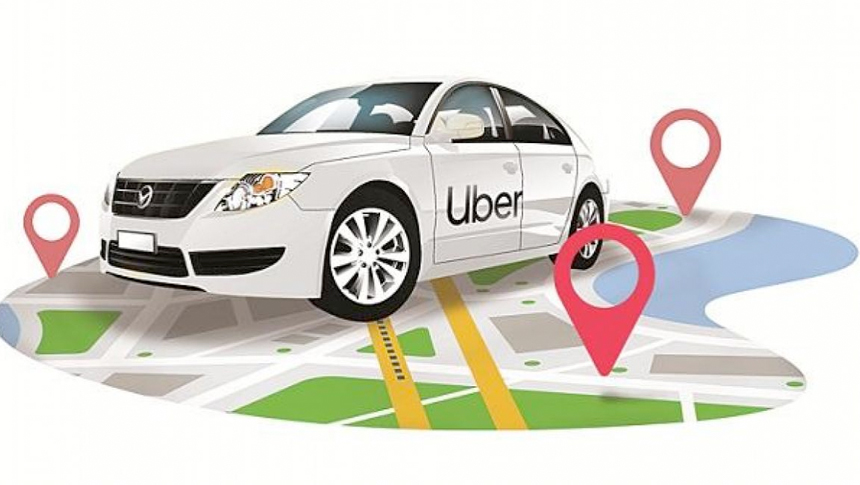Blockchain is big. Bigger than the Internet.
Every now and then there comes a significant intervention in our industry that becomes so ubiquitous that we don’t realise its influence – till it all but surrounds us. I am just listing down a few for us to think aloud about.
Marketing before the invention of printing press (knowledge became freely available).
Marketing before the invention of electricity (there were only 10 hours in a day).
Marketing after the invention of steam engine/automobiles (access and distribution became wider).
Marketing after the invention of radio (storytelling took a different form, theatre of the mind).
Marketing after the invention of telephone (distance was never an issue after that).
Marketing after the invention of photography (memories got captured better and hence trigger nostalgia or aspirations).
Marketing before the invention of semi-conductors/TV sets (storytelling took another leap for a visual delight).
Marketing after the invention of personal computers (repeatable models became faster giving efficiency and speed to market).
Marketing after the invention of Internet (the world just got smaller and days just got longer).
Marketing after the invention of mobile phones (all of the above and more)!
Even as we still grapple with all that we can do with a mobile phone with AR, VR and a host of other technological upgrades coming our way, mobile phones, as an intervention, have delivered what I believe is the biggest intervention to marketing in recent times i.e., personalisation. With personalisation came a host of opportunities and challenges, but to me, the central theme is about freedom of expression and individuality of choices.
For a marketer, it is important to understand that mobile phones have fundamentally altered the landscape. From building awareness to actual sale, from developing communication (and content) to actual commerce, from marketing to sales, from insights to consumer understanding, this one device has broken down all silos in an organization, forcing all of us to think of this world not as a “market’ but as a “platform”, which probably explains why Facebook, Airbnb and Uber are so successful.
What has all this got to do with blockchain?
In as much as the mobile phone has opened up opportunities for everybody and everything, it has also brought in the most important challenge to the market place – deficit of trust. Trust, the asset, that is going to be far more important than anything else, should marketers really want consumers to listen to them!
The volume and velocity of data that is flowing in the marketplace is at such an unprecedented scale, that we are dealing with five billion individuals at every second as individuals first and then as communities or cohorts.
Why should this affect trust?
Trust erodes when there is a repeated inconsistency in a relationship; ditto between a brand and the consumer. Today the biggest mystery marketers are grappling with is in assembling a consumer’s journey from awareness to action. As the consumer walks in and out of various gardens across Search, Social and Entertainment platforms, each of his/her experiences is contained and restricted to that particular garden and marketers are not able to insightfully stitch it up in providing a consistent understanding of the consumer (match rate is only at 30%) and therefore, today, the messaging is very different, inconsistent and more often than not, cacophonical. This affects trust big time!
We need a methodology, more so a technology, that is able to connect these experiences, assemble it and provide marketers with the complete value chain so as to enable them to build the much-required trust or a relationship with the consumer.
This is where I believe Blockchain Technology plays a key role.
Blockchain is not a cryptocurrency or a Bitcoin. Blockchain is a technology that has four key elements to it.
First and foremost, there is a data set or a structure; think of it as a record that captures a brand’s relationship with its consumer.
Second, this data structure is managed as a distributed ledger (imagine a munimji recording all his daily transactions in a notebook) by multiple anonymous individuals (nodes for the uninitiated and for those who are in to Bitcoin, miners) who have some stake in the relationship;
Third, each of these stakeholders carries a token (permission) to record their relationship in that ledger with a connecting hashtag that is managed cryptographically.
Four, a decentralized and an autonomous organization that empanels these stakeholders to ensure that there is adequate representation of all of them.
A distributed ledger of records kept and maintained anonymously by a decentralized and an autonomous group is the much-required technology for the media and entertainment industry today.
The potential is immense in unravelling the complete consumer journey, as the distributed ledger will record all the transactions from all the gardens without any concern of letting their own information overflowing, but equally have a say in the overall understanding of the journey as well.
The same technology can also be used to ensure that brands are provided authentic adjacency to the environment in which the communication in placed, by independent scoring.
Smart contracting is another obvious intervention for marketers especially when there are multiple partners involved in a project that requires interim sign offs across the entire value chain from content to its distribution and the commerce thereafter.
Why should this be the next critical understanding for marketers?
Disintermediation due to Internet has transformed all markets into platforms. There are multiple stakeholders constantly interacting with each other playing different roles, often competing but equally building value to each other. The only reason why anyone will come to a platform is when there is “trust” and then there is “mutual benefit”.
Blockchain technology helps build trust between two stakeholders without compromising either position. Even as marketers strive to break down silos in their own organizational divisions across sales, commerce, insights and technology, a better understanding of this technology will help a marketer find a viable solution not just for their internal stakeholders, but equally external stakeholders to interact without any concerns and build value.
The last significant intervention was the emergence of Internet that disrupted the marketing process and gave operational efficiencies; the next intervention will be Blockchain that is going to help marketers build trust and consensus amongst varied stakeholders to build a meaningful relationship between the consumer and the brand.



